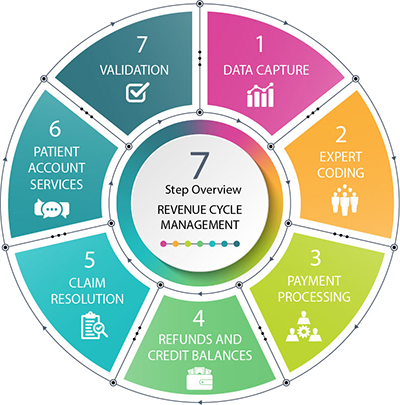The healthcare sector, a critical component of our society, is undergoing a significant transformation, largely driven by advancements in medical billing services. These services, provided by specialized medical billing companies, are not just administrative tasks but pivotal elements in the healthcare ecosystem. This article delves deep into the intricacies of medical billing services, highlighting their importance, challenges, and future direction.

1. The Foundation of Medical Billing Services:
- Begin with an overview of what medical billing services encompass. Explain how these services form the backbone of healthcare revenue, involving everything from patient registration to final payment collection.
2. The Critical Role of Medical Billing Companies:
- Discuss how medical billing companies act as vital cogs in the healthcare machinery, ensuring that medical practices can focus on patient care while leaving financial management in expert hands.
3. Challenges in Medical Billing:
- Address common challenges faced in medical billing, such as staying up-to-date with coding standards, dealing with insurance companies, and ensuring billing compliance.
4. Technological Advancements in Medical Billing:
- Explore how technology, including AI, machine learning, and advanced software, is reshaping the landscape of medical billing, making it more efficient and less prone to errors.
5. Compliance and Regulatory Environment:
- Delve into the complex world of healthcare regulations, discussing how medical billing services navigate this maze to ensure compliance with laws like HIPAA and the Affordable Care Act.
6. The Impact of COVID-19 on Medical Billing:
- Discuss how the pandemic has affected medical billing, from the surge in telehealth claims to the changes in insurance policies and billing for COVID-19 related treatments.
7. Outsourcing vs. In-House Billing: Pros and Cons:
- Compare the advantages and disadvantages of outsourcing medical billing to a third party versus handling it in-house, providing insights for healthcare providers on making the best decision for their practice.
8. The Importance of Accurate and Efficient Billing:
- Emphasize the significance of accuracy in medical billing, highlighting the repercussions of billing errors on both healthcare providers and patients.
9. Selecting the Right Medical Billing Company:
- Offer guidance on choosing the best medical billing company, focusing on factors such as experience, technological capability, customer service, and cost-effectiveness.
10. The Future of Medical Billing:
- Envision the future of medical billing services, touching on potential developments like increased automation, integration of blockchain technology for secure billing, and the growing importance of data analytics in revenue cycle management.
Conclusion: Medical billing company, a crucial aspect of healthcare management, are at a turning point. As the industry continues to evolve, medical billing companies play an increasingly important role in ensuring the financial stability and efficiency of healthcare providers. By staying abreast of technological advancements and regulatory changes, these companies are not just processing claims; they are shaping the future of healthcare.
Comments
Post a Comment